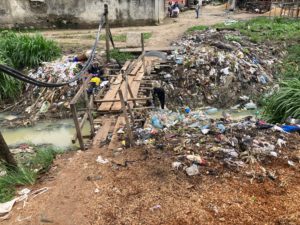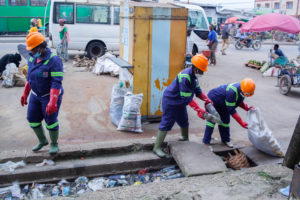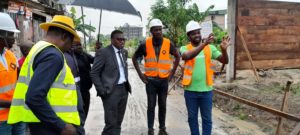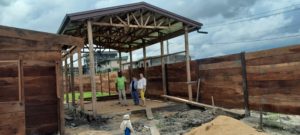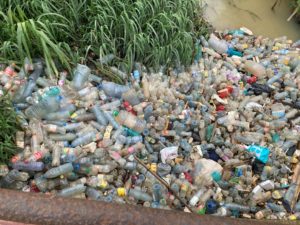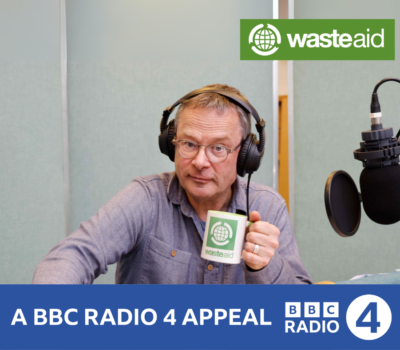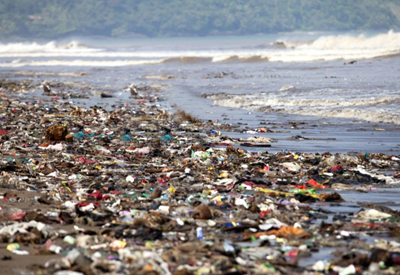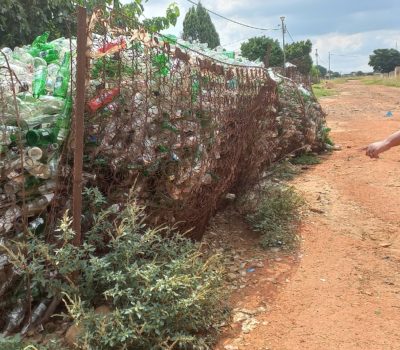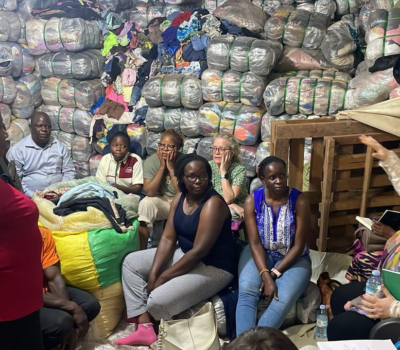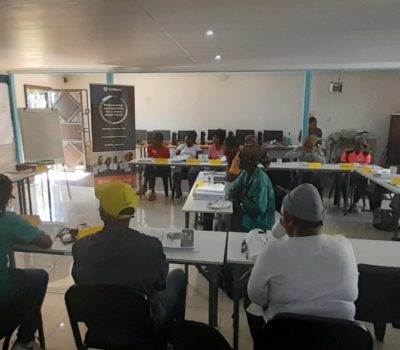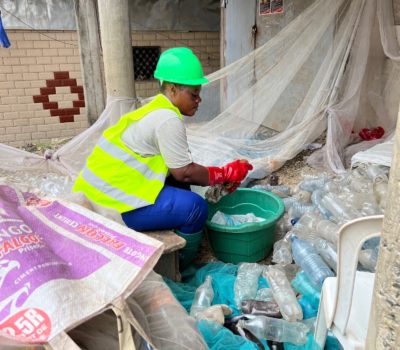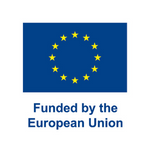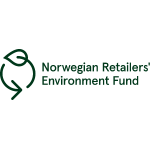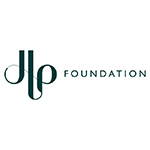A spotlight on Biffa and WasteAid’s Proud Partnership in Cameroon.
News, Thought Pieces,
Author: Ceris Turner-Bailes
Published: 17 January 2023
Written by Ceris Turner-Bailes, Chief Executive WasteAid.
In November, I had the privilege of travelling to Douala, Cameroon to follow up on WasteAid’s projects there. I was delighted to travel with our new Circular Economy and Waste Management Lead, Rebecca Colley Jones – this was Rebecca’s first visit in support of our projects. As many will know, WasteAid has had links to Cameroon for a number of years and started formally delivering programmes in January 2020 funded initially through the UKAID Match programme. Biffa staff were instrumental in WasteAid achieving the level of funding required so that this amount could be ‘matched’ by the UK government. They contributed a total of £36,000. This was a fantastic effort and Biffa’s fundraising skills resulted in a huge step forward for community collection and recycling activities in Douala. Despite the pandemic resulting in this project being suspended for almost a year, the initiative was finalised in August 2022 with some fabulous results. Over the almost 24 months of active programming, 47.8 metric tonnes of mixed plastics were collected for recycling and transformed into 2537 square metres of paving tiles. At the same time 165 programme participants were trained on life skills and recycling techniques, with over half of those now in employment. This is something of which all of us at WasteAid and Biffa can be proud.
The city of Douala still faces significant challenges in managing its waste, with plastics and organics waste streams dominating. The situation depicted in images of drains and rivers filled with plastic that many of you know well has not entirely changed and the waters of the Douala Estuary still remain highly polluted. However, it was heartening to meet with many of the stakeholders within Douala’s circular economy and to understand that real efforts are being made there to tackle the waste problem. WasteAid’s presence in Cameroon and its initiatives have been welcomed. To ensure sustainability, we want to work within the existing value chain, finding ways of further supporting those working within it. To that end part of the visit was also to follow up on our initiative to build and support a Plastics Recovery Facility (PRF) in Douala III. Crucially, we have been allocated land by the local authority on which to build and both the Mayor and his staff have been extremely keen to support our work.
Following the hugely successful gala event held by Biffa in May 2022, a proportion of the funds raised went towards supporting this PRF project, particularly contributing £15,000 to the construction of the centre itself. I was delighted to be able see great progress during my visit. The centre is now about 70% completed with walls and a roof and our focus is now the purchase of equipment and recruiting the collectors who will use this facility. We need to ensure that both the infrastructure and the system we use are fit for purpose. I am delighted that some of those likely to work in the PRF are actually graduates of WasteAid’s UKAID Match programme who now have small waste collection businesses and networks of collectors. We will be catching up with some of these people and sharing their stories in the coming weeks.
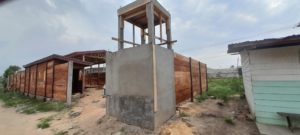
There is still a lot of work to do to ensure that the infrastructure we provide is right and Rebecca is now working with our Cameroon project team to source the right equipment. By washing and baling plastic bottles, the collectors can almost double the price when selling to off takers and this has the potential to make a huge difference to their livelihoods. The PRF will also allow the collectors to process more plastic, at the moment most collectors are simply working by hand at the side of the street. WasteAid will support the Douala plastics value chain and 45 collectors through this sustainable PRF that has simple washing and baling facilities. Whilst this may seem very simple, the increase in income will help the waste collectors significantly improve their livelihoods and will further prevent plastic pollution in the communities of Douala.
